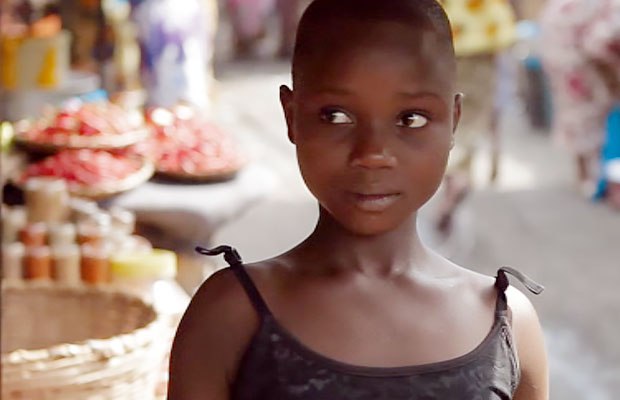
Renewed Hope for Child Slaves
“Trafficking isn’t the children’s wish … and it’s a terrible situation for the girls and boys who suffer it. It kills their hope.” So says Marc Tsanda, a child psychologist who works on behalf of rescued youth at the Don Bosco Center in Porto-Novo, Benin. Sadly, far too many adults in this West African country care little for the hopes and dreams of their children — and instead sell them into slavery, often for the equivalent of $30 or even less.
Tsanda’s work is featured in a recent documentary called “No Estoy en Venta” (“I am Not for Sale”), produced by the Salesian Mission Office in Madrid, Spain. In it, he and his colleagues highlight a heartbreaking practice that occurs not just in Benin. Across Africa, Asia, South America and elsewhere, a perfect storm of poverty and greed breeds a culture where child trafficking is accepted.
Invisible to society, these innocent girls and boys are shipped across borders. Alone in a foreign land, they are forced into labor, exploited, abused and often starved. With no connection to home, they lose their language, their self-identity and — worst of all — their futures.
“Once they get these children into another country, the traffickers can do what they want with them,” says Father Juan José Gómez, director of the Foyer Don Bosco youth hostel at the Don Bosco Center. “The children have absolutely no rights. Sometimes, they may only eat once a day — and that’s only if they’ve worked ‘hard enough’.”
Young Jules is one of thousands of children in Benin who has endured such horror.
“One day, my father brought me to his friend’s house,” he recalls. “And the friend brought me to Nigeria, to a lady’s house. The lady gave my father’s friend money — and then he left me there, alone. I didn’t know why. And I was scared.”
“The children don’t understand,” confirms Carine Agossou, another psychologist working at the Don Bosco Center. “They say, ‘why have they done this to me?’ And when it’s the people who should be protecting them — the people who should be keeping them safe and sound — that’s very hard to accept.”
Ms. Agossou points to poverty, first and foremost, as the reason parents sell their children. “So many families live in desperate conditions,” she says, “and parents don’t even have enough to live. In the countryside, parents may not even have enough money to buy a pen that costs 25 cents.”
Hence, the idea of trading a child for cash easily becomes appealing — and innocent children like Jules pay the heartbreaking price.
Fortunately for Jules — after years of brutal domestic servitude — he took a chance and escaped, eventually finding his way back across the border and into the welcoming arms of the Don Bosco Center. Here, he enjoys safe shelter, nutritious meals, and the chance to reclaim his lost childhood. When he is ready, Jules will return to school — and begin building the foundations for a future he once thought impossible.
Each year, this particular Don Bosco Center cares for more than 200 victims of child trafficking like Jules. But the need is vast: an estimated 40,000 girls and boys are forced into agricultural or domestic labor each year. And that’s just in Benin. Worldwide, UNICEF estimates that 1.2 million children are trafficked at any given time.
It is for these reasons that our Salesian missionaries, together with their passionate and dedicated staff, are committed to addressing the root causes and conditions that result in child trafficking and other abuse in countries around the globe. From identifying traffickers and holding them accountable — to educating families about immoral and oppressive practices — they are working to change local laws and strengthen legal protections for youth. Our missionaries are truly leading the charge toward lasting societal change.
For more insight into our expertise and work on this important issue, please watch our short film:
“I Am Not for Sale”.

